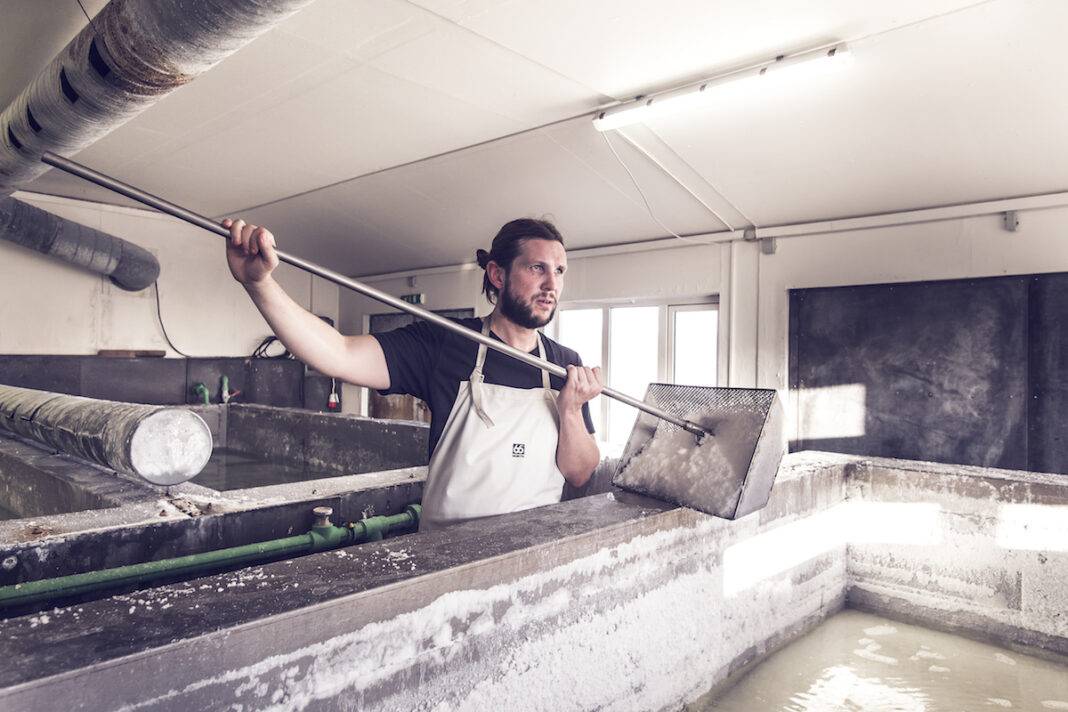A small-batch salt, hand-crafted using geothermal energy.
I recently tried Saltverk, an addictively delicious flaky sea salt handcrafted in Iceland and made with locally harvested ingredients. I had always seen chefs online rave about high quality finishing salts, but didn’t quite understand what the hype could be about until I found myself opening a jar of Saltverk and pinching out a few flakes just to snack on.
Björn Steinar Jónsson founded Saltverk in 2011 with the vision of using sustainable methods to produce an innovative, craft food product that celebrated the heritage of Iceland.
“It all has to do with the cultural roots of being Icelanders and wanting to use what nature has to offer us in making a product that would not harm the environment in any way.”
–Björn Steinar Jónsson
Born and raised in Reykjavik, Jónsson went on to study engineering in Copenhagen, where he found himself inspired by the local craft and artisanal food scene. Producers like the Mikkeller brewery and the Coffee Collective focused on creating thoughtful, high-quality products, and were thriving. When Jónsson returned to Iceland he began thinking about what type of craft food production would highlight the prosperity of Iceland.
“One of the main reasons for the wellbeing and prosperity of Icelanders has been, throughout the centuries, the geothermal energy we have,” Jónsson says. “I wanted to utilize this in some way. And utilize it in a good way because a lot of the industries that had been using the geothermal energy here in Iceland in the decades before were often industries that were polluting heavily in the outcome of using this energy.”
The Origins of Saltverk
Jónsson decided to find a way to use geothermal energy from the hot springs of northwest Iceland to make salt from the pristine seawater of the Westfjords. He discovered that salt production had been an important industry in Iceland in the 17th century and wanted to see if he could produce this traditional product using modern technology. Saltverk was born.
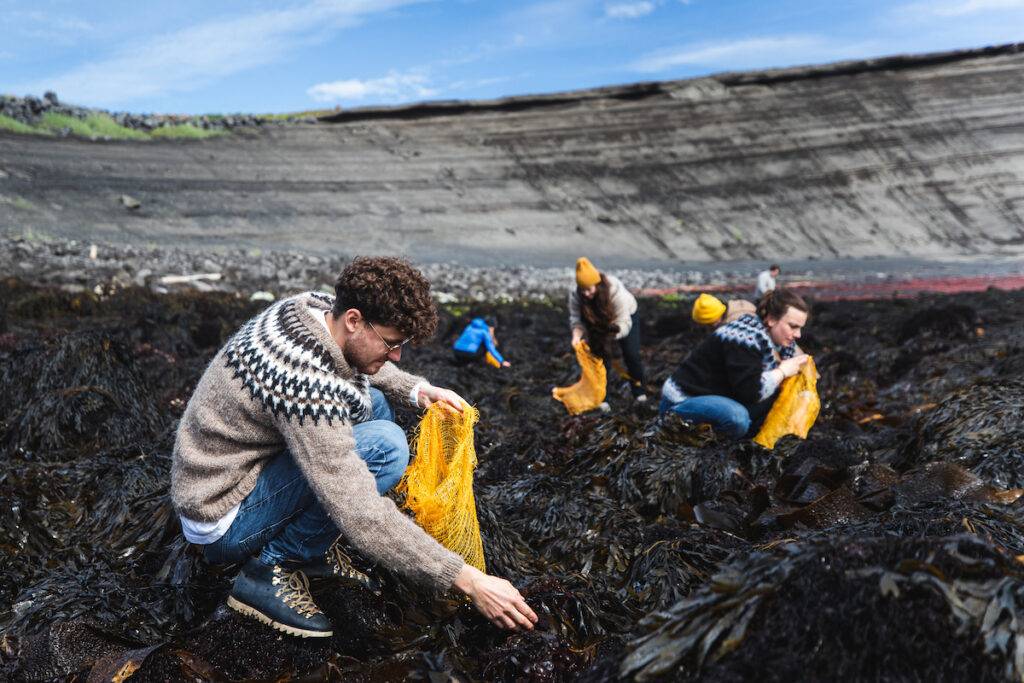
“It all has to do with the cultural roots of being Icelanders and wanting to use what nature has to offer us in making a product that would not harm the environment in any way,” Jónsson says. “And that’s what we’re doing — nothing added, nothing taken away. We’re simply making salt by heating up the seawater and evaporating it.”
The seawater from the Westfjords is around three percent salinity, and salt crystallizes at 28 percent salinity. To enable crystallization, the team at Saltverk uses the traditional open pan process (or soft pans) to heat a large surface area of seawater with geothermal energy to evaporate off about 90 percent of the water. The result is a fine restaurant-quality, flaky sea salt.
Other Climate Considerations
Saltverk’s production is entirely carbon neutral. The salt production uses only geothermal energy and the natural flow of sea water; the electricity they use comes from Iceland’s geothermal or hydroelectric power plants, and, since 2015, any additional carbon output from transportation is offset by planting trees with a local carbon auditing organization. Jónsson says that the volume of water that they use to produce their handcrafted salts is nearly negligible in the grand scheme of the Westfjords ecosystem. “We might be using between 30 and 40 tons — there are millions of tons of seawater in that field that flows in and out just based on the tides,” Jónsson says. “But we’re a small producer crafting by hand, so we’re also able to regularly evaluate if our process has any impact on the surrounding environment.”
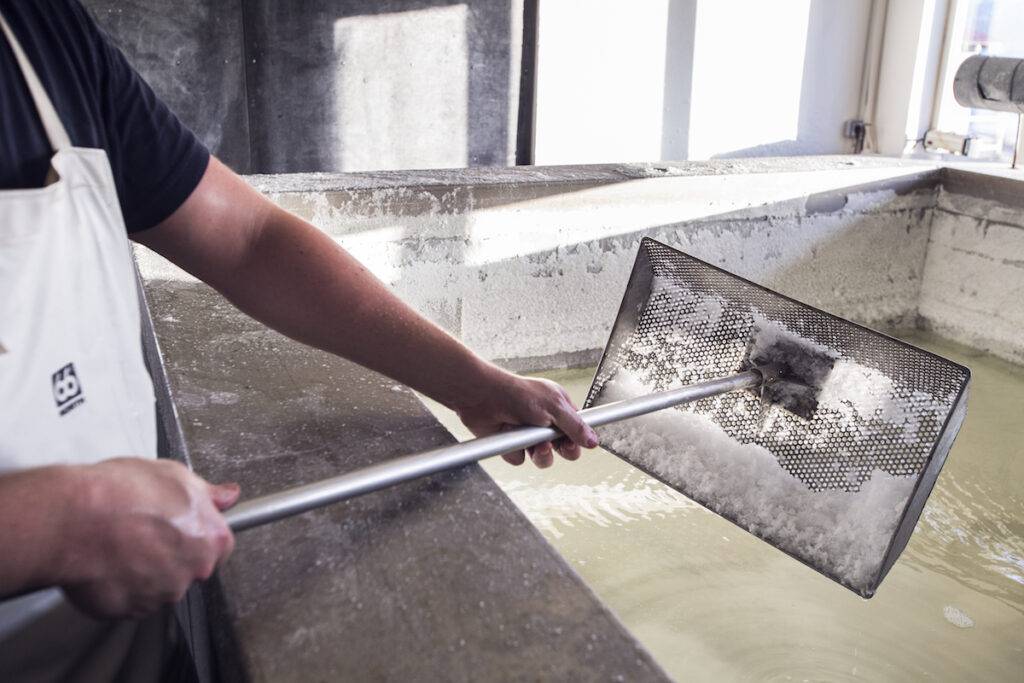
With respect to the impact that a changing climate has had on their production processes, Jónsson has found that while the final product has remained consistent, the environment in which they are working has faced increasingly severe and consistent winter storms.
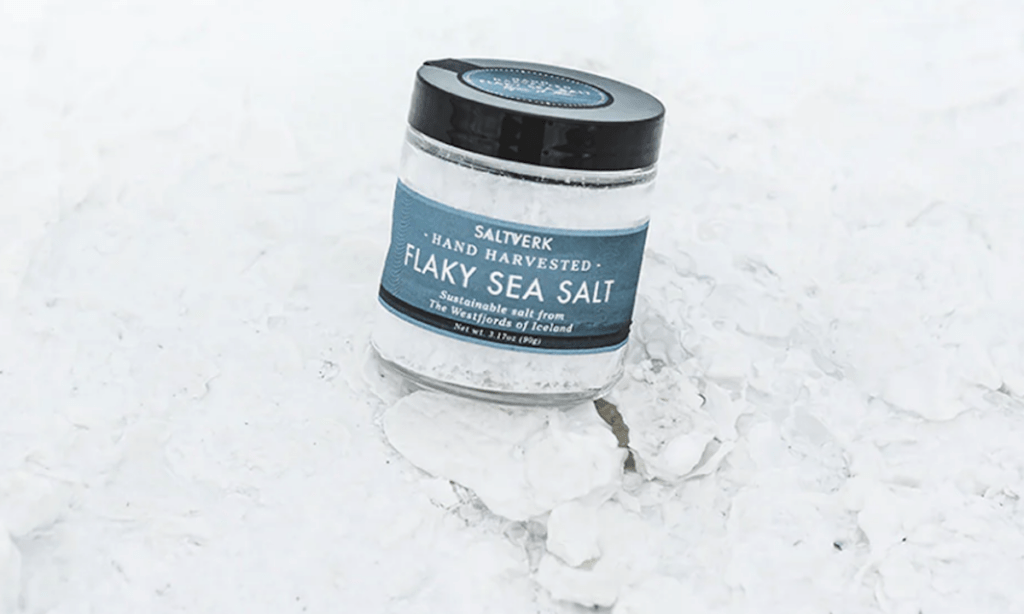
The Salt
In addition to the original flaky sea salt, Saltverk also produces birch-smoked salt, Arctic thyme salt, seaweed salt, lava salt, and licorice salt.
Saltverk can be purchased online and currently ships to the United States and Canada.
Print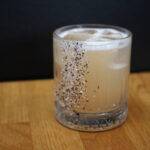
Grilled Pineapple Margarita
- Yield: Makes 1 cocktail and enough syrup for a few cocktails. 1x
Ingredients
- 1 oz Grilled Pineapple Syrup (see below)
- 1/2 oz lemon juice
- 3/4 oz grapefruit juice
- 1 oz tequila (100% agave preferred)
- 1/2 oz mezcal
- Saltverk Seaweed Salt
For the Grilled Pineapple Syrup:
- 1 pineapple
- 2/3 cup sugar
- 1/3 cup warm water
Instructions
- To prepare the grilled pineapple syrup, remove the outside of the pineapple and discard. Cut the pineapple into quarters and remove the core from each piece.
- Grill the pineapple pieces over medium-high heat until it has good caramelization (approx 4-5 minutes on each side). When finished, pineapple should have a light char, and should not be black.
- While pineapple cools, put sugar and warm water together in a bowl, then chill to room temperature.
- Once simple syrup is cooled, add it and the grilled pineapple to a blender. Blend until well mixed then strain. Syrup will last for a month refrigerated.
- Salt your cocktail glass to your liking. Add all ingredients to a cocktail mixer and shake. Strain and enjoy!


